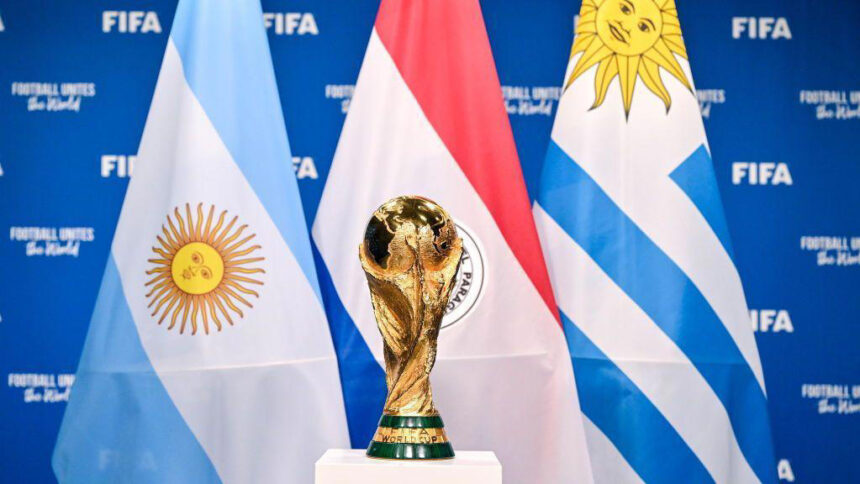Concacaf Joins Critics of 64-Team Expansion Plan

The proposal to expand the 2030 FIFA World Cup from 48 to 64 teams is under fire, with key football governing bodies including Concacaf, Uefa, and the Asian Football Confederation (AFC) voicing strong opposition to the idea.
Concacaf president Victor Montagliani stated that further expansion would negatively impact the balance of global football. “I don’t believe expanding the men’s World Cup to 64 teams is the right move for the tournament itself and the broader football ecosystem,” Montagliani said, citing concerns for national teams, club competitions, and the overall football structure.
He emphasized that the 48-team format, which will debut in the 2026 World Cup across the United States, Canada, and Mexico, has yet to be tested. “We haven’t even kicked off the new 48-team World Cup yet,” he added. “Expanding to 64 teams should not even be on the table.”
Origin of the Proposal and Conmebol’s Push
The idea of a 64-team World Cup was introduced last month by Ignacio Alonso, president of the Uruguayan Football Association, during a FIFA council meeting. The South American confederation Conmebol formally proposed the expansion, with its president Alejandro Dominguez arguing it would ensure “nobody on the planet is left out of the party.”
Dominguez reinforced the sentiment at the Conmebol Congress, where he rallied support for the proposal, adding fuel to what is becoming a heated global debate within the football community.
Uefa and AFC Echo Strong Opposition
Uefa president Aleksander Ceferin also came out strongly against the expansion. “It is not a good idea for the World Cup itself, and it’s not a good idea for our qualifiers,” he said. Ceferin expressed surprise over the sudden emergence of the proposal, noting, “It’s strange that we didn’t know anything before this was discussed at the FIFA Council.”
The Asian Football Confederation (AFC) also joined the opposition. President Sheikh Salman bin Ibrahim Al Khalifa warned that such a move could open the door to even larger expansions. “If the issue remains open to change, then someone might come along and demand raising the number to 132 teams. Where would we end up then? It would become chaos.”
Logistical Concerns for 2030 World Cup
The 2030 World Cup is already unique and complex. Scheduled to be hosted jointly by Spain, Portugal, and Morocco, the tournament will also have opening matches in Paraguay, Uruguay, and Argentina to commemorate the centenary of the first World Cup held in Uruguay in 1930.

An expansion to 64 teams would mean increasing the number of matches from the 104 planned for 2026 to a staggering 128. Critics argue that this would stretch logistics, dilute competitive quality, and disrupt football schedules globally.
Next Steps and FIFA’s Position
FIFA has yet to take an official stance on the 64-team proposal but acknowledged that it must review all formal suggestions. The matter may be brought up during the upcoming 75th FIFA Congress scheduled to be held in Asuncion, Paraguay on May 15.
With mounting opposition from powerful confederations, the push for a 64-team World Cup could struggle to gain further traction. As stakeholders prepare for the unprecedented 48-team tournament in 2026, the focus may remain on evaluating its impact before considering any additional changes.
Category: Sports, Football, FIFA World Cup, Global News
Tags: FIFA 2030, World Cup expansion, Concacaf, Uefa, AFC, Alejandro Dominguez, Victor Montagliani, Aleksander Ceferin, Sheikh Salman, Uruguay World Cup, FIFA council









